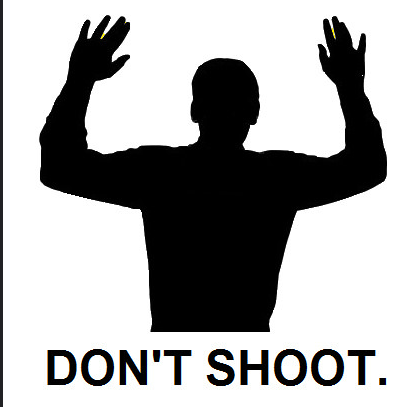I really have a problem with the second-day opinion that the Charleston shooter was “mentally ill” or “disturbed”. 99% of the time, the person offering that assessment isn’t at all a qualified doctor, and 100% of the time, he hasn’t examined the shooter. There’s a ridiculous circular logic that the shooter’s actions explain his mental state, and his mental state explains the shooting. “Of course he is mentally ill; he killed those people”, you hear. Oddly, however, that psychiatric diagnosis is rarely applied to, say, the 9/11 hijackers or WWII Nazis or the Boston Marathon bombers or Muslim suicide bombers. Only white people with guns.
There are a couple of problems with calling the shooter “mentally ill” (aside from the fact that it is pure conjecture). One problem is, by calling him crazy, people (politicians and pundits, etc.) can then dismiss the larger, more relevant discussion, whether it be gun laws or racism or whatever. I hear it all the time in every gun control debate — “Well, the (Aurora/Sandy Hook/Charleston) shooter was crazy, and you can’t legislate against crazy.” Can we open ourselves up to the possibility that some people are simply, you know, evil? Again, we seem to have no problem when it comes to Muslim shooters or bombers. We don’t crawl into their head and give them a psychiatric evaluation.
Secondly, I bet there is not a person reading this who has not experienced mental illness. Technically, even temporary depression or anxiety are forms of mental illness. When you hear the phrase “mentally ill” (or any synonym), think “physically ill”. Everybody gets physically ill at some point (often many times) in their lives. And some people have (or develop) chronic physical illnesses. It’s just the same with mental illness. Therefore, having a mental illness, whether chronic or temporary, doesn’t make you Charles Manson or a horrible killer. It doesn’t necessarily foreclose the possibility that you might (also) simply be a horrible person or (I hasten to add) a wonderful person. It’s just something you have.
So let’s show some respect for the concept of “mental illness” and not use that as a label to avoid the harder conversations of racism and gun control. It is disrespectful to those who suffer from mental illness, as well as those who suffer from racism or the effects of a gun-crazy society.
The worst culprits of this sin lie on the right side of the political spectrum. If they are not dismissing the Charleston shooter as “disturbed”, then they are “baffled” by why he might do this.
Jeb on #CharlestonShooting: “I don’t know what was on the mind or the heart of the man who committed these atrocious crimes.”
— Sahil Kapur (@sahilkapur) June 19, 2015
Again, the right wing just doesn’t want to acknowledge a race problem. So they’ll wear blinders so they can avoid the news reports about what the shooter said:
let’s see… “you people are raping our women and taking over our country. and you gotta go”… yes. yes i’m calling him racist. — No. (@Felonious_munk) June 18, 2015
And just this morning:
(CNN) Dylann Roof admits he did it, two law enforcement officials said — shooting and killing nine people he’d sat with for Bible study at a historically black church in Charleston, South Carolina.
But why? To start a race war, Roof told investigators, according to one of the officials.
Aside from calling the shooter “mentally ill”, they have a couple other tactics to avoid discussing the race or gun issue. Tell me if you’ve heard any of these lately:
(1) Now is not the time….. we should think of the victims and pray. (And then move on)
(2) We should not politicize this horrible event. Out of respect for the victims, we should think of them (and then move on). Any attempt to change laws, or prevent this from happening again, will divide the nation and create more trouble like what happened.
(3) It’s about religious freedom.
But returning to mental health, why the “crazy” argument? Well, it’s a way to dismiss the issue. To give yourself authority that you know (or can’t know, because it is baffling) the true root cause of something. Don’t listen to the Charleston shooter, the right wing says. He’s nuts!!!
But we should listen to Dylann Roof. He’s telling us why he did it.
UPDATE – Salon says the same thing as me…. and adds:
We’ve successfully created a world so topsy-turvy that seeking medical help for depression or anxiety is apparently stronger evidence of violent tendencies than going out and purchasing a weapon whose only purpose is committing acts of violence. We’ve got a narrative going where doing the former is something we’re OK with stigmatizing but not the latter. God bless America.
Yup.
RELATED: Jon Stewart not being funny is amazing:
“What blows my mind is the disparity of response between when we think people that are foreign are going to kill us and us killing ourselves.”

